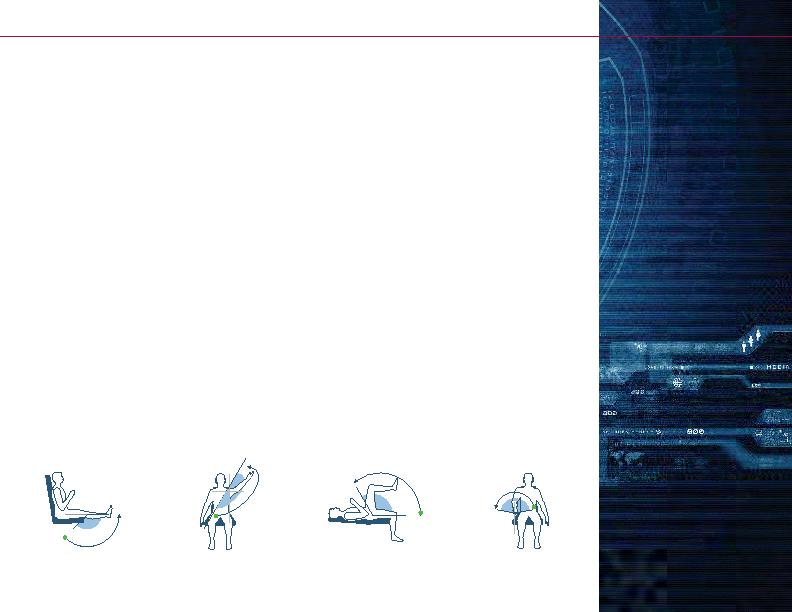
- 7 -
Prove need, progress, and outcome
Six phases of rehabilitation.
1.
Healing Constraints and Proving Need
In
Passive Mode
, gentle range of motion exercise
can facilitate the healing process and restore
normal range of motion necessary for function.
Isometric mode
allows safe, comfortable
strengthening and testing at specified angles
that are safe for both your pre- and
post-operative patients.
2.
Controlling Joint Effusion/Inflammation
Utilizing the
Passive Mode
with other modalities
allows the structures around the joint to work as a
pump to move blood, lymph and waste products
out of the joint. System 4 has the capability to move
the limb as slow as .25 degrees per second and
with force capabilities as low as .5 ft-lb.
3.
Restoring Range of Motion
Controlling the System 4 through the GUI interface in
Passive Mode
allows range of motion to be restored
by gradually increasing range of motion on the fly in
a specified direction, at appropriate speeds and safe
torque levels.
4.
Restoring Strength and Proving Progress
Isometric, active assistive, submaximal concentric,
eccentric contractions are early strengthening
techniques that are available to the System 4 user.
More progressive maximal concentric, eccentric
contractions are available in
Isokinetic, Isotonic,
Passive and Reactive Eccentric modes
. These
modes are also suitable for testing and delineating
a documentable progression of muscular strength,
endurance and joint position sense.
5.
Restoring Function
Isokinetic concentric / concentric mode
allows
for safe exercise at speeds which approximate
function. Impact and inertia-free
Isotonic Mode
allow muscles to contract exactly as they would
perform during functional activities. Proprioception,
muscular acceleration and deceleration are also
activities that are addressed with the Biodex
System 4.
6.
Proving Outcome
All five modes
can objectively assess isolated joint
muscle strength and neuromuscular control.
B
IODEX

